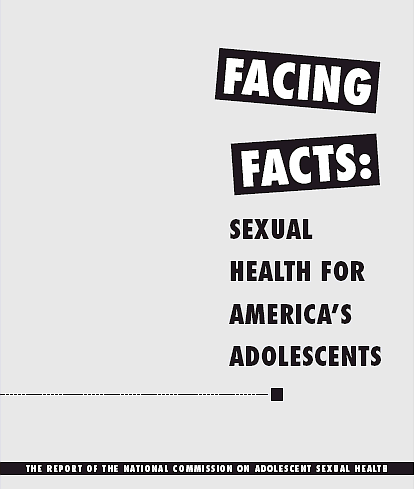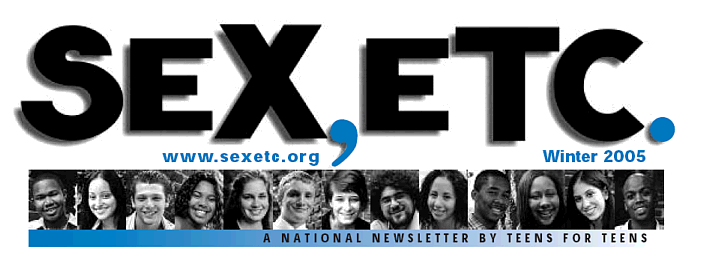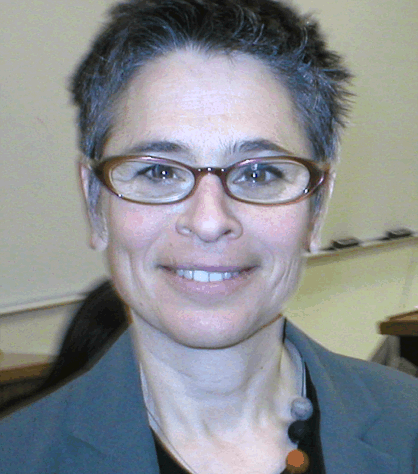

mailto: payer@payer.de
Zitierweise / cite as:
Payer, Margarete <1942 - >: Informationsmarktverzerrung durch Fundamentalismus am Beispiel der USA. -- Kapitel 3: Sexuelle Aufklärung und AIDS. -- 5. Informationsmanager gegen Prüderie. -- Fassung vom 2005-03-23. -- URL: http://www.payer.de/fundamentalismus/fundamentalismus035.htm
Erstmals publiziert: 2005-03-23
Überarbeitungen:
Anlass: Lehrveranstaltung an der Hochschule der Medien Stuttgart, Sommersemester 2005
Copyright: Dieser Text steht der Allgemeinheit zur Verfügung. Eine Verwertung in Publikationen, die über übliche Zitate hinausgeht, bedarf der ausdrücklichen Genehmigung des Verfassers.

Diese Inhalt ist unter einer Creative Commons-Lizenz lizenziert.
Dieser Text ist Teil der Abteilung Länder und Kulturen von Tüpfli's Global Village Library
Selbstverständlich erhebt die Auswahl der Organisationen keinen Anspruch auf Vollständigkeit. Die behandelten Organisationen sind wegen ihrer überragenden Bedeutung oder als typische Beispiele gewählt.
Webpräsenz: http://www.ncsse.org/. -- Zugriff am 2005-03-09
"The National Coalition to Support Sexuality Education (NCSSE) consists of over 140 national organizations committed to medically accurate, age-appropriate comprehensive sexuality education for all children and youth in the United States. Members of NCSSE represent a broad constituency of education advocates and professionals, health care professionals, religious leaders, child and health advocates, and policy organizations. NCSSE's goals include:
- Providing a forum for networking, resource sharing, and collaboration among national organizations supporting comprehensive sexuality education
- Holding biannual meetings on key issues in sexuality education.
- Empowering member organizations to advocate for comprehensive sexuality education policies and programs at the national and state level.
[Quelle: http://www.ncsse.org/. -- Zugriff am 2005-03-09]
Wird von SIECUS (siehe unten) gemanaged
Webpräsenz: http://www.siecus.org/. -- Zugriff am 2005-03-09

Abb.: Eine Publikation von SIECUS (1995)
"SIECUS-the Sexuality Information and Education Council of the United States-has served as the national voice for sexuality education, sexual health, and sexual rights for almost 40 years. SIECUS believes that sexuality is a natural and healthy part of life and that all people have the right to the information, skills, and services they need to make responsible sexual decisions.
Four Decades of Leadership
In 1964, a physician, a lawyer, a sociologist, a family life educator, a clergyman, and a public health educator came together to form a new organization dedicated to assuring that all people had access to information about sexuality.
In the four decades that followed, SIECUS has been at the forefront of efforts to promote sexuality education for people of all ages, protect sexual rights, and expand access to sexual health.
Since our founding, SIECUS has helped millions of people understand, embrace, and respect their sexuality through our work with educators, health-care providers, parents, journalists, policymakers, religious leaders, community members, and young people. This tradition continues today:
Information: SIECUS works to make sure that information, knowledge, and skills are within everybody's reach. Each year, SIECUS distributes hundreds of thousands of print and electronic resources to educators, advocates, parents, researchers, physicians, and others working to expand sexual health programs, policies, and understanding. SIECUS also offers specialized assistance to help individuals locate research, write accurate news articles, create sexual health curriculum, and build support for high quality programs in their community.
Education: SIECUS provides information and training opportunities for educators, health professionals, parents, and communities across the country to ensure that people of all ages, cultures, and backgrounds receive high quality, comprehensive education about sexuality. We work to provide parents and educators with the information they need on important issues such as sexuality education, youth development, sexual and reproductive health, puberty, abstinence, relationships, sexual orientation, body image, self-esteem, sexually transmitted diseases, HIV/AIDS, unintended pregnancy, and more.
Public Policy: SIECUS works to secure sound public policies on sexuality-related issues by developing targeted educational resources for policymakers, providing thoughtful analysis of sexuality and reproductive health issues, and bringing together key organizations to move forward a proactive agenda on the national, state, and local levels. Through all our work, we advocate to expand sexual and reproductive health education programs, policies, funding, and rights
International: SIECUS partners with organizations around the world. We provide technical assistance, specialized trainings and workshops, and program guidance to advance sexuality education, reproductive health, HIVAIDS treatment and prevention programs, and advocacy efforts worldwide.
Media Outreach: SIECUS provides major news sources with information on advances in reproductive healthcare, family communication about sexuality, sexuality education, prevention programs, the inadequacies of abstinence-only-until-marriage programs, and the many issues faced by gay, lesbian, bisexual, transgender, and questioning youth. By engaging and educating influential media outlets, SIECUS is moving the public discourse on these critical issues to be more open and honest.
[Quelle: http://www.siecus.org/about/index.htm. -- Zugriff am 2005-03-09]
 |
 |
 |
|
 |
 |
 |
 |
 |
 |
 |
 |
 |
 |
 |
 |
Abb.: Logo®
Webpräsenz: http://www.nonewmoney.org/. -- Zugriff am 2005-03-09
Public Support for Comprehensive Sexuality Education The overwhelming majority of adults want comprehensive sexuality education programs in our nation's schools. The voting public realizes that, while we may hope that our teens do not become sexually active before they are emotionally and physically prepared, the reality is that over 60% of teens have had sex by the time they reach 12th grade. Current federal policy provides over $100 million per year for abstinence-only-until-marriage sexuality programs that deny young people valuable and potentially life-saving information. Young people deserve all the information, and the public soundly agrees.
Numerous surveys of adults from around the country demonstrate strong public support for comprehensive sexuality education in American schools:
- 93% of Americans support teaching sexuality education to high school age students; 84% support sexuality education for middle and junior high school age students.
- 90% of the engaged, voting public believe all students should receive sexuality education that is age-appropriate, medically accurate, and that begins early and continues through high school.
- 66% of registered voters are in favor of a proposal to increase efforts to provide age-appropriate sexuality education in public elementary schools.
- 54% of adults believe that eliminating sexuality education in schools would lead to more teenage pregnancies.
- Support for sexuality education is not limited to a particular region, but rather exists across the country. Polls from CA, IN, NC, NM, NY all show strong support for medically accurate, age-appropriate sexuality education in schools.
These surveys also show strong public support for a breadth of topics being included in sexuality education curricula:
- 96% of Americans support providing information about AIDS in high schools.
- 90% of Americans believe that the biology of reproduction should be among the topics included in sexuality education curricula in schools.
- 87% of Americans believe that birth control should be among the topics included in sexuality education curricula in schools.
- 92% of Americans believe that STDs and AIDS should be among the topics included in sexuality education curricula in schools.
- 91% of adults believe that 9th –10th grade is the appropriate age to teach students about HIV/AIDS/STDs.
There is also broad support across religious lines:
- More than 10 religious organizations are members of the National Coalition to Support Sexuality Education, including the American Jewish Congress, the Office of Family Ministries and Human Sexuality of the National Council of Churches of Christ, and the Unitarian Universalist Association.
- Almost eight in ten conservative Christians support sexuality education in high school and seven in ten support it in middle school.
[Quelle: http://capwiz.com/siecus/home/. -- Zugriff am 2005-03-09]
Webpräsenz: http://www.sxetc.org/. -- Zugriff am 2005-03-09

Abb.: Titelleiste der vom NFLE herausgegeben Zeitschrift®
About the Network for Family Life Education: For 20 years, the Network – based at the Rutgers University Center for Applied Psychology – has provided resources, advocacy, training and technical assistance in support of age-appropriate, balanced, comprehensive sexuality education, first in New Jersey and now nationwide.
Our Guiding Principles:Young people deserve honest, medically accurate and balanced information about sexuality in schools, homes, and communities. Teen-to-teen communications is an effective vehicle for educating about sexual health. Educators and youth-serving professionals need training and support.
Evaluation Equals Results:A study by Catherine Sanderson, Ph.D., reported in the Journal of Adolescent Research, 15:6 [November 2000], 674-810, concluded that students who read SEX, ETC. showed significant increases in positive attitudes toward postponing sexual activity and in negative attitudes toward drug use.
Professional Development:The Network specializes in training adults to deliver effective sexuality education programs to children and youth. Our training department offers 15 different workshops that meet the needs of teachers in all greade levels, K-12. All our training programs emphasize best practices and evidence-based information. A popular workshop teaches educators how to effectively use SEX, ETC. in the classroom.
[Quelle: http://www.sxetc.org/index.php?topic=About+NFLE. -- Zugriff am 2005-03-09]
About SEX, ETC. A leader in teen-to-teen sexuality education, SEX, ETC. is an award-winning national newsletter and Web site that is written by teens, for teens, on teen sexual health issues.
SEX, ETC. is the major component of the National Teen-to-Teen Sexuality Education Project developed by the Network for Family Life Education a nonprofit organization that provides resources, advocacy, training, and technical assistant in support of balanced, comprehensive sexuality education in the United States. The Network is based at the Center for Applied Psychology at Rutgers, The State University of New Jersey.
We, the teen writers and editors of SEX, ETC., believe that all teens deserve honest, medically-accurate and balanced information about human sexualityso that we can make responsible choices about our sexual health. We believe that teen-to-teen communication is one of the best ways to educate teens about human sexuality and sexual health.
Our goal is to reach millions of teens with positive, balanced, and medically-accurate messages about sexual health, so we can help reduce the high rate of teen pregnancy and sexually transmitted infection in the U.S. To reach our goal, we write stories for our Web site and national newsletter, and partner with other national youth media. Currently, we write columns for MTVs sexual health campaign, Fight for Your Rights: Protect Yourself, and Teen People magazine.
[Quelle: http://www.sxetc.org/index.php?topic=Who+We+Are. -- Zugriff am 2005-03-09]
- Are you a teen between the ages of 14 and 19 who wants to contribute to SEX, ETC.? Check out our many paid opportunities.
- Are you a teen activist for better sex ed? Check out our activist tool, The Roadmap: A Teen Guide to Changing Your Schools Sex Ed.
- Are you an adult who wants more info on comprehensive sexuality education for teens? Check out our section for parents and professionals.
Abb.: EinbandtitelAchtung: dieses Buch ist auch bei Nichtfundamentalisten wegen einiger Aussagen umstritten!
Levine, Judith <1952 - >: Harmful to minors : the perils of protecting children from sex / Judith Levine ; foreword by Joycelyn M. Elders. -- Minneapolis : University of Minnesota Press, ©2002. -- xxxv, 299 p. ; 24 cm. -- ISBN: 0816640068 (alk. paper). . -- {Wenn Sie HIER klicken, können Sie dieses Buch bei amazon.de bestellen}
Contents:
Censorship: the sexual media and the ambivalence of knowing
Manhunt: the pedophile panic
Therapy: "children who molest" and the tyranny of the normal
Crimes of passion: statutory rape and the denial of female desire
No-sex education: from "chastity" to "abstinence"
Compulsory motherhood: the end of abortion
The expurgation of pleasure
The facts
and truthful fictions
What is wanting? gender, equality, and desire
Good touch: a sensual education
Community: risk, identity, and love in the age of AIDS.

Abb.: Judith Levine
[Bildquelle:
http://lawweb.usc.edu/news/releases/2003/Levine.htm. -- Zugriff am
2005-03-21]
"Harmful to Minors: The Perils of Protecting Children From Sex (ISBN 0816640068) is a book by Judith Levine that was published in 2002 with a foreword by former United States Surgeon General Joycelyn Elders. In the book, Levine lambasts US laws concerning child pornography, statutory rape, and abortion for minors. It also analyzes abstinence only sex education, which Levine considers counter-productive and dangerous.
Because of its controversial nature and content, it was nearly impossible for Levine to find a publisher—one prospective publisher even called it "radioactive." University of Minnesota Press eventually agreed to publish the book, despite cries of outrage from the right wing of Minnesota's political establishment.
It became famous after it won the Los Angeles Times Book Award. Conservatives such as Joe Scarborough and Robert Knight inaccurately accused Levine of promoting pedophilia for her suggestion that the US adopt statutory rape laws similar to those in the Netherlands. Some demanded the book be removed from libraries.
[Quelle: http://en.wikipedia.org/wiki/Harmful_to_Minors. -- Zugriff am 2005-03-08]
Zu Kapitel 4: Weg von den öffentlichen Schulen!